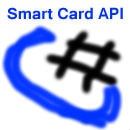ISO 7816-4 section 7 - Transmission-oriented Interindustry Commands
7.1 GET RESPONSE command
7.2 ENVELOPE command
It shall not be mandatory for all cards complying to this part of ISO/IEC 7816 to support all the described commands or all the options of a supported command.
When international interchange is required, a set of card system services and related commands and options shall be used as defined in clause 9.
Table 11 provides a summary of the commands defined in this part of ISO/IEC 7816.
The impact of secure messaging (see 5.6) on the message structure is not described in this clause.
The list of error and warning conditions given in each clause 7.X.5 is not exhaustive (see 5.4.5).
7.1 GET RESPONSE command
7.1.1 Definition and scope
The GET RESPONSE command is used to transmit from the card to the interface device APDU(s) (or part of the APDUs) which otherwise could not be transmitted by the available protocols.
7.1.2 Conditional usage and security
No condition.
7.1.3 Command message
Table 74 – GET RESPONSE command APDU
| CLA | As defined in 5.4.1 |
| INS | ‘C0’ |
| P1-P2 | ‘0000’ (other values are RFU) |
| Lc field | Empty |
| Data field | Empty |
| Le field | Maximum length of data expected in response |
7.1.4 Response message (nominal case)
Table 75 – GET RESPONSE response APDU
| Data field | (Part of) APDU according to Le |
| SW1-SW2 | Status bytes |
7.1.5 Status conditions
The following specific normal processing may occur :
SW1=’61’ with SW2
- ‘XX’: Normal processing: more data bytes are available (‘XX’ indicates a number of extra data bytes still available by subsequent GET RESPONSE).
The following specific warning condition may occur :
SW1=’62’ with SW2=
- ’81’: Part of returned data may be corrupted
The following specific error conditions may occur.
SW1=’67’ with SW2=
- ’00’: Wrong length (the Lc field is incorrect)
SW1=’6A’ with SW2=
- ’86’: Incorrect parameters P1-P2
SW1=’6C’ with SW2=
- ‘XX’: Wrong length (wrong Le field, ‘XX’ indicates the exact length)
7.2 ENVELOPE command
7.2.1 Definition and scope
The ENVELOPE command is used to transmit APDU(s) or part of APDUs or any data string which otherwise could not be transmitted by the available protocols.
NOTE – The usage of ENVELOPE for SM is shown in annex F .
7.2.2 Conditional usage and security
No condition.
7.2.3 Command message
Table 76 – ENVELOPE command APDU
| CLA | As defined in 5.4.1 |
| INS | ‘C2’ |
| P1-P2 | ‘0000’ (other values are RFU) |
| Lc field | Length of the subsequent data field |
| Data field | (Part of) APDU |
| Le field | Empty of length of expected data |
When the ENVELOPE command is used under T=0 for transmitting data strings, an empty data field in an ENVELOPE command APDU means end of data string.
7.2.4 Response message (nominal case)
Table 77 – ENVELOPE response APDU
| Data field | Empty or (part of) APDU according to Le |
| SW1-SW2 | Status bytes |
NOTE – The status bytes belong to the ENVELOPE command. Status bytes of a command transmitted in the data field of the ENVELOPE command may be found in the data field of the ENVELOPE response.
7.2.5 Status conditions
The following specific error conditions may occur.
SW1=’67’ with SW2=
- ’00’: Wrong length (the Lc field is incorrect)
- Easy-to-use chip card integration with .NET library
with C# and VB.NET sample code for Mifare, DESFire EV1, JavaCard, KVK, eGK, SIM, PIV, CAC, HID Prox, iCLASS, SEOS and many more

